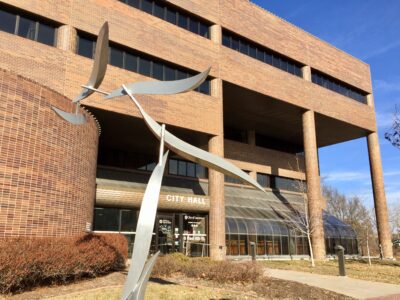Parents can keep an eye on teen drivers
Insurance firms introducing products to help keep young motorists safe
Technology is about to give parents new and detailed looks inside the cars and actions of their teenage drivers.
Two insurance companies – American Family and Safeco – are poised to roll out products they say are intended to improve safety for teens on the road:
¢ Teensurance, to be offered beginning Wednesday by Safeco, puts a GPS “Safety Beacon” device inside a teen’s car that allows parents to check a driver’s conformance to speed, distance, location and curfew limitations. When agreed-on limits are exceeded, parents find out in real time through notifications sent to parents’ computers, home phones, cell phones or other wireless devices.
¢ The Teen Safe Driver Program, to be offered Aug. 1 in Kansas by American Family, places a camera on the windshield of a teen’s car and then uploads audio-visual data from both inside and outside the vehicles when an incident of high-risk driving behavior occurs. Whenever there’s sudden braking, swerving or acceleration, the device preserves video and audio from 10 seconds before and after the incident, then sends it to a Web site that parents can check.
Ron King, a Lawrence insurance agent who writes more American Family policies than anyone else in Kansas, said that such information could be used by parents to educate their teen drivers about safe driving techniques and practices. Video snippets will show whether the driver is wearing a seat belt, carrying six passengers in the back, talking on a cell phone or doing anything else that might boost the risk of getting into an accident.
King is sure that many teens – his own included – won’t like the idea of having the folks watching their roadway moves.
“But that’s just tough,” he said, of plans for his own sons, Ryan and Riley. “If you don’t want it? Walk.”
The justification, in his mind, is simple.
“I believe, 100 percent, that this will save a kid’s life,” he said. “And it may be mine. It’ll make teenagers better drivers.”
Joe Baker, of CEK Insurance Inc., which sells Safeco policies in Lawrence, noted that Safeco’s own research already had shown that teens follow a fairly predictable pattern when it comes to dealing with the presence of a GPS device affixed to their car:
1. Resistance, as in “no way you’re doing this to me.”
2. Resignation, upon realization that resistance is futile – parents own the car, or at least pay the insurance bill, and therefore can take the keys away.
3. Acceptance, once the benefits of “proving” model behavior are realized.
“They say, ‘OK, Mom and Dad, you know where I am,'” Baker said. “‘You know how fast I’m going. Because I’m behaving properly, I deserve more trust and more privileges.’
“They get them, and then they’re happy with it.”
Both products and services will be offered to existing and new policyholders. The devices and their installation will be offered at no charge.
American Family’s service will be free for at least the first year, King said. Safeco’s GPS service will cost $14.99 a month, a price guaranteed for two years.
Such technological advancements will be looked upon to boost safety, King said, and that’s good for customers, their families, the driving public and, yes, the companies themselves.
“We don’t have to pay as many claims,” he said.




